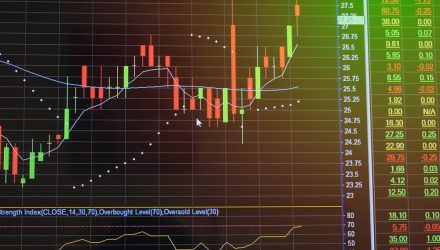Equities are surfing a nice, strong wave of momentum, but unfortunately, this is the stock market and not the North Shore in Hawaii. One telltale sign that could give credence to whether momentum can sustain its mojo is the behavior of retail investors.
“The study, “Retail Investors’ Contrarian Behavior Around News and the Momentum Effect,” began circulating in February in academic circles. Its authors are Cheng (Patrick) Luo, the lead data scientist at Farallon Capital Management; Enrichetta Ravina, a professor at Northwestern University’s Kellogg School of Management; and Luis Viceira, a professor at Harvard Business School. The researchers reached their conclusions upon analyzing the trading records of 2.8 million individual accounts at a major discount brokerage firm from 2010 through 2014,” a MarketWatch report stated.
“They found that, on balance, individual investors react in a contrarian way to earnings surprises,” added the report. “That is, they tend to sell stocks that have had a positive surprise and buy stocks with a negative surprise. Their behavior leads to momentum because it means that stocks underreact to their earnings surprises. As the market eventually corrects this underreaction, the positive-surprise stocks keep on winning and the negative-surprise stocks continue losing.”
Surfing the Wave of Momentum
Momentum—once it picks up, it can be difficult to stop and while the debate in the capital markets is whether value can sustain its lead overgrowth, investors can’t forget about the momentum factor, especially if events like a U.S.-China trade deal can spark a year-end rally.
One ETF that investors can look at when it comes to riding the wave of momentum is the iShares Edge MSCI USA Momentum Factor ETF (BATS: MTUM), which has been yielding gains of over 23% YTD according to Morningstar performance numbers. The fund seeks to track the investment results of the MSCI USA Momentum Index.
The fund generally will invest at least 90% of its assets in the component securities of the underlying index and may invest up to 10% of its assets in certain futures, options and swap contracts, cash and cash equivalents. As far as the index goes, it consists of stocks exhibiting relatively higher momentum characteristics than the traditional market capitalization-weighted parent index, the MSCI USA Index, which includes U.S. large- and mid-capitalization stocks.
Another fund to consider is the Principal Sustainable Momentum Index ETF (PMOM). PMOM seeks to provide investment results that closely correspond to the performance of the Nasdaq U.S. Sustainable Momentum Index, which uses a quantitative model designed to identify equity securities, including growth and value stocks, within the Nasdaq US Large Mid Cap Index that exhibit sustainable price momentum, based on historical stock prices over multiple periods and taking multiple market environments into consideration.
For more market trends, visit ETF Trends.

